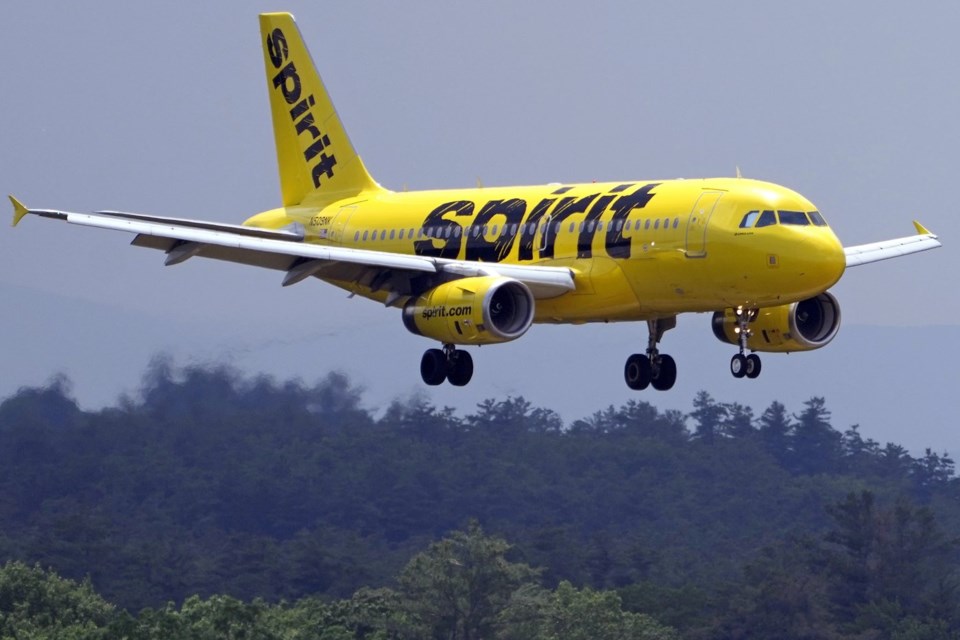NEW YORK (AP) — Just five months after emerging from Chapter 11 bankruptcy protection, Spirit Airlines is warning about its future ability to stay in business.
Spirit Aviation Holdings, the budget carrier's parent company, says it has “substantial doubt” about its ability to continue as a going concern over the next year — which is accounting-speak for running out of money. In a quarterly report issued Monday, Spirit pointed to “adverse market conditions" that it's continued to face after a recent restructuring and other efforts to revive its business.
That includes weak demand for domestic leisure travel, which Spirit said persisted in the second quarter of its fiscal year — among other challenges and “uncertainties in its business operations” that the Florida company expects to continue “for at least the remainder of 2025.”
Spirit’s shares tumbled nearly 40% by midday Tuesday, with the company’s stock trading at just over $2.20 as of around 1 p.m. ET.
Known for its no-frills, low-cost flights on a fleet of bright yellow planes, Spirit has struggled to recover and compete since the COVID-19 pandemic. Rising operation costs and mounting debt eventually led the company to seek bankruptcy protection in November. By the time of that Chapter 11 filing, the airline had lost more than $2.5 billion since the start of 2020.
When Spirit emerged from bankruptcy protection in March, the company successfully restructured some of its debt obligations and secured new financing for future operations. Spirit has continued to make other cost-cutting efforts since — including plans to furlough about 270 pilots and downgrade some 140 captains to first officers in the coming months.
The furloughs and downgrades announced last month go into effect Oct. 1 and Nov. 1 to align with Spirit's “projected flight volume for 2026,” the company noted in its quarterly report. They also follow previous furloughs and job cuts before the company's bankruptcy filing last year.
Despite these and other cost-cutting efforts, Spirit on Monday stressed that it needs more cash. As a result, the company said it may also sell certain aircraft and real estate.
And as discount carriers struggle to compete with bigger airlines — many of which have snagged budget-conscious customers through their own tiered offerings — Spirit is attempting to tap into the growing market for more upscale travel. It is now offering flight options with tiered prices, the higher-priced tickets coming with more amenities. The company pointed to the new strategy again on Monday.
Spirit’s aircraft fleet is relatively young, which has also made the airline an attractive takeover target. But such buyout attempts from budget rivals like JetBlue and Frontier were unsuccessful both before and during the bankruptcy process, and Spirit has not publicly indicated interest in such a transaction since.
Wyatte Grantham-philips, The Associated Press


